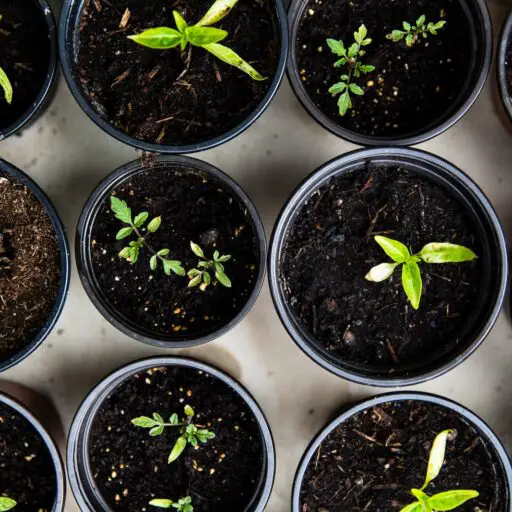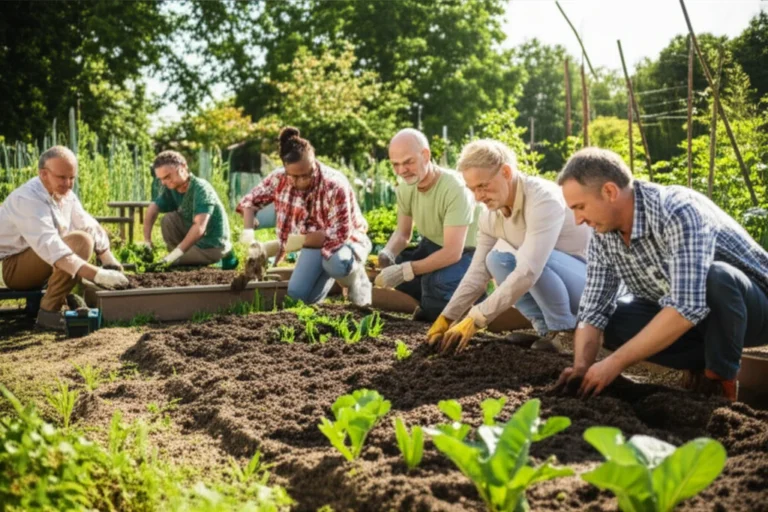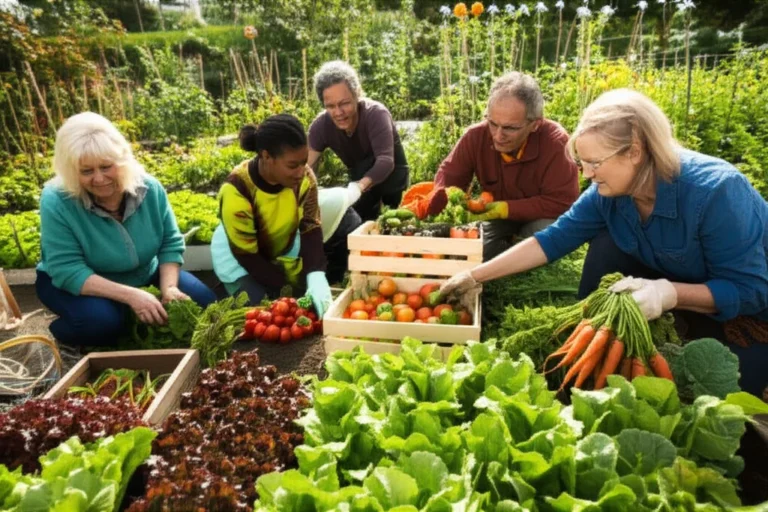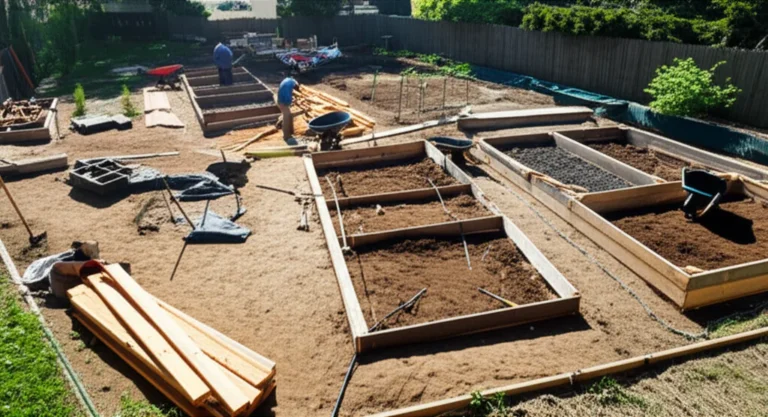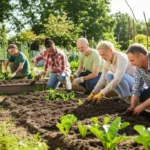Support our educational content for free when you purchase through links on our site. Learn more
Have you ever wondered why community gardens seem to buzz with more than just bees and butterflies? It turns out, gardens are secret social superheroes, quietly weaving bonds between neighbors, boosting mental health, and even making neighborhoods safer. At Community Gardening™, we’ve witnessed firsthand how a simple patch of earth can transform lives and communities in ways you might never expect. Stick around, because later we’ll reveal how gardens can reduce crime rates, bridge generational gaps, and even spark economic growth—all while you’re just planting your favorite veggies!
Ready to dig into the dirt and discover how gardens grow more than plants? Let’s explore the 8 surprising social benefits of gardens that prove green spaces are truly the heart of thriving communities.
Key Takeaways
- Gardens build strong social connections by bringing diverse people together around a shared purpose.
- Mental health improves through stress reduction and therapeutic interaction with nature.
- Community safety increases as cared-for gardens discourage crime and foster neighborhood pride.
- Gardens promote inclusivity and intergenerational bonding, creating welcoming spaces for all ages and backgrounds.
- Environmental stewardship and food security are natural byproducts of community gardening efforts.
- Economic opportunities arise through skill development and local produce sales.
Ready to start your own garden adventure? Check out our favorite tools and resources:
- Fiskars Ergo Garden Tool Set: Amazon | Walmart | Fiskars Official Website
- Community Gardening™ Benefits Articles: Explore More
Table of Contents
- ⚡️ Quick Tips and Facts: Your Green Thumb Guide to Garden Goodness
- 🌱 The Roots of Connection: A Brief History of Social Gardening
- Why Gardens Are Social Superheroes: Unearthing the Benefits
- 1. 🤝 Cultivating Community & Forging Friendships
- 2. 🧠 Sowing Seeds of Serenity: Mental Well-being & Stress Reduction
- 3. 🍎 Growing Goodness: Enhancing Food Security & Access
- 4. 📚 Learning & Earning: Skill Sharing, Education, and Economic Sprouts
- 5. 👵👴 Bridging Generations: Intergenerational Bonding in the Beds
- 6. 🌍 Nurturing Nature: Environmental Stewardship & Urban Greening
- 7. 🛡️ Greening for Good: Safer Neighborhoods & Crime Prevention
- 8. 🌈 Embracing Everyone: Fostering Inclusivity & Diversity
- Digging Deeper: Beyond the Social Surface
- Getting Your Hands Dirty: Starting Your Own Social Garden Adventure
- Your Role in the Green Revolution: What Can You Do?
- Conclusion: Harvesting Happiness, One Garden at a Time
- Recommended Links: Your Next Steps in the Garden Journey
- FAQ: Your Burning Garden Questions Answered
- Reference Links: Where We Got Our Green Wisdom
⚡️ Quick Tips and Facts: Your Green Thumb Guide to Garden Goodness
Welcome, fellow earth-lovers! Before we dig deep into the soil of social connection, let’s get a bird’s-eye view of the amazing things that happen when people garden together. Here at Community Gardening™, we’ve seen it all, and trust us, it’s more than just growing tomatoes. It’s about growing communities.
Here’s a quick snapshot of the incredible power packed into every community garden plot:
| Fact Category | The Juicy Details 🍓 |
|---|---|
| Social Connection | Community gardeners report higher levels of well-being than those who garden alone. It’s a scientifically-backed way to make friends! |
| Mental Health Boost | Just looking at plants can lower blood pressure and reduce feelings of stress, anger, and fear. A short walk in a garden is better for your mental health than a walk in a shopping mall. |
| Physical Wellness | Gardeners get a great workout! It improves strength, balance, and flexibility. Plus, community gardeners eat more veggies—nearly a four-fold increase for adults! |
| Community Safety | Turning vacant lots into gardens can help reduce crime. A cared-for space shows community pride and discourages illicit activities. |
| Environmental Impact | Gardens are eco-warriors! A single maple tree can remove a significant amount of air pollutants annually. Community gardens also promote biodiversity and sustainable agriculture. |
| Economic Sprouts | Participants can develop valuable skills and even earn income by selling produce at local farmers’ markets. It’s a win-win for your wallet and your neighborhood. |
Think of a community garden as a multipurpose tool, much like our favorite Fiskars Ergo Garden Tool Set. It doesn’t just do one thing; it cultivates friendships, improves health, and beautifies our world all at once.
🌱 The Roots of Connection: A Brief History of Social Gardening
The idea of people coming together to cultivate land is as old as agriculture itself, but the modern concept of community gardening has some fascinating roots. It’s not just a trendy new hobby; it’s a revival of a powerful tradition.
During World War I and II, “victory gardens” sprouted up across the United States, the UK, and Canada. These weren’t just about food production; they were a massive social movement. Neighbors shared tips over fences, children learned where food really comes from, and everyone felt a sense of shared purpose. Even prisoners of war found solace and connection through gardening; during WWI, the Royal Horticultural Society sent seeds to British prisoners in Germany to help them cultivate gardens.
The concept of gardens as healing spaces also has a long history. For centuries, therapeutic gardens have been a part of hospitals, offering a peaceful refuge for patients and staff. In more recent times, this has evolved into what experts call “green care,” a therapy that uses exposure to nature to improve mental and physical health. From the stunning, accessible “Horatio’s Gardens” designed for patients with spinal injuries in the UK to green spaces in prisons that have been shown to reduce the need for medical services, the evidence is clear: gardens are places of restoration and connection.
Why Gardens Are Social Superheroes: Unearthing the Benefits
So, what is it about digging in the dirt together that transforms strangers into neighbors and neighbors into friends? Is it some kind of plant-based magic? Well, yes and no. The social benefits of gardens are vast and varied, touching every aspect of community life. We’ve seen firsthand how these green
Conclusion: Harvesting Happiness, One Garden at a Time
Well, dear reader, after wandering through the lush landscape of social benefits that gardens offer, it’s clear that gardens are much more than just pretty patches of green. They are social superstars, mental health boosters, community builders, and environmental champions all rolled into one. Whether you’re a seasoned gardener or just someone curious about how a few plants can change your life, the evidence is overwhelming: gardens cultivate connections that nourish the soul.
Remember our teaser about the magic of plant-based social alchemy? It’s not magic—it’s science and shared experience. From reducing crime to improving mental well-being, from bridging generations to fostering inclusivity, gardens are the ultimate social glue. And if you’re wondering how to get started, don’t fret! Community Gardening™ is here to help you grow together, one seedling at a time.
So, why wait? Grab your gloves, find a patch of earth, and start planting friendships today. The garden is calling, and the benefits are ripe for the picking!
Recommended Links: Your Next Steps in the Garden Journey
Ready to dig in? Here are some handpicked resources and tools to help you get growing:
- Fiskars Ergo Garden Tool Set: Amazon | Walmart | Fiskars Official Website
- Gardening Books:
- Community Gardening™ Articles:
FAQ: Your Burning Garden Questions Answered
How do community gardens improve social connections?
Community gardens act as social hubs, bringing together people from diverse backgrounds who share a common interest in growing plants. This shared purpose fosters cooperation, trust, and friendship. Studies show that gardeners involved in community plots report higher subjective well-being compared to solo gardeners. The physical space provides a natural setting for conversations, skill-sharing, and mutual support, which strengthens social ties and builds social capital. Plus, gardening groups often organize events and workshops that further enhance social interaction.
What role do gardens play in building community cohesion?
Gardens are powerful tools for community cohesion because they transform neglected or underused spaces into vibrant, cared-for environments. This collective stewardship instills a sense of pride and ownership among residents, which can reduce crime and promote neighborhood safety. Gardens also provide inclusive spaces where cultural traditions can be shared and celebrated, especially among immigrants and refugees, fostering cultural integration and mutual understanding. The physical act of gardening together breaks down social barriers and creates a sense of belonging.
Can gardening help reduce social isolation and loneliness?
Absolutely! Gardening offers both active and passive social engagement. For those who may feel isolated, joining a gardening group provides meaningful interaction and a sense of purpose. Even passive exposure to green spaces—simply being in or viewing a garden—has been shown to reduce feelings of loneliness and improve mood. For older adults, gardening groups are particularly beneficial, offering social support networks that protect against isolation, especially during life transitions like retirement.
What are the mental health benefits of participating in community gardens?
Community gardening is a form of green care therapy that improves mental health by reducing stress, anxiety, and depression. Exposure to plants and natural environments lowers blood pressure and calms the nervous system. Gardening activities provide restorative experiences that require less cognitive effort, allowing the mind to relax and rejuvenate. Furthermore, the sense of accomplishment from growing food or flowers boosts self-esteem and purpose. Therapeutic gardens in hospitals and care homes demonstrate these benefits vividly, improving patient outcomes and staff well-being.
How do community gardens contribute to environmental sustainability?
Community gardens promote biodiversity, air quality improvement, and climate resilience. Plants absorb pollutants and carbon dioxide, while increasing oxygen levels. Gardens help mitigate urban heat island effects by cooling neighborhoods and providing shade. They also encourage sustainable practices such as composting and organic growing methods, reducing reliance on industrial agriculture. By turning vacant lots into green spaces, community gardens improve soil health and support pollinators, contributing to a healthier urban ecosystem.
What challenges do community gardens face, and how can they be overcome?
Common challenges include securing land tenure, funding, and managing diverse participant expectations. Gardens may also face vandalism or lack of community engagement. Solutions involve partnering with local governments and nonprofits for support, establishing clear governance structures, and fostering inclusive, welcoming environments. Regular community events and transparent communication help maintain enthusiasm and cooperation. At Community Gardening™, we’ve seen that persistence and collaboration are key to overcoming obstacles and thriving.
Reference Links: Where We Got Our Green Wisdom
- National Center for Biotechnology Information (NCBI):
Green Care and Mental Well-being
Gardening and Positive Aging - One New Humanity CDC:
The Benefits of Community Gardens — One New Humanity CDC - Royal Horticultural Society:
RHS Official Website - Horatio’s Garden:
Horatio’s Garden Official Site - Fiskars:
Fiskars Official Website - Community Gardening™:
Benefits of Community Gardens
Community Garden Events
Garden Design Ideas
Edible Plants
Community Garden Benefits to the Global Community
Happy gardening and growing together! 🌿🌻
